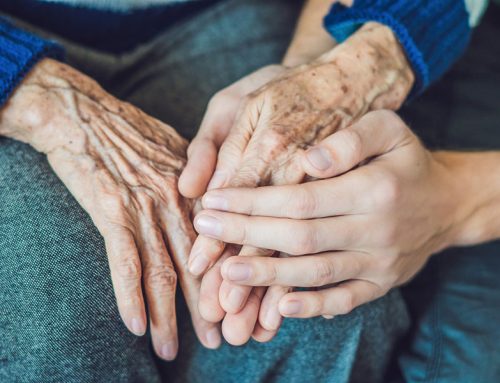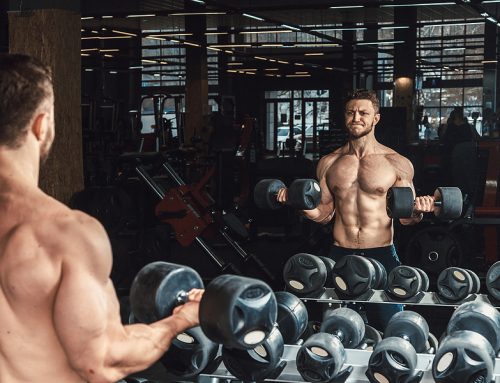The average lifespan in the U.S. is now up to 78.7 years (81.2 for women vs 76.2 for men) according to the latest data. We are already living longer, and with advances in medical care on the horizon, lifespan is expected to increase even further. In a recent Pew survey, most respondents said they would like to live longer – but only about a decade more. The median response for the desired lifespan was age 90, with a normal range being seen as 79 to 100. The big surprise was that most people did not want to live to 120 or beyond…

The thought that popped into my head this time was, at 45, that would put me at the half way point of my life, if my goal for longevity were the same as the average American’s.
But living only to 90 is not my goal.
I’ve always wanted to live as long as a human can live. Why wouldn’t that be everyone’s goal? Personal development icon Jim Rohn once said, “Every life form seems to strive to its maximum except human beings. How tall does a tree grow? As tall as it possibly can!”
Having heard that people have lived to 120, I’ve always had a goal that I will live to 120, or right up to what is biologically possible. Then a few years ago, a brilliant coach and mentor convinced me that my goal should be 140. Seriously, I really do have a goal card I carry in my pocket with “live to a strong and healthy 140” in writing.
People ask me, “What if you die sooner?” Well, if I come up a little short, 130 is not so bad is it? Neither is 120 for that matter. And the truth is, I have no ideal how long I will live. But I figure you have close to zero percent chance of 120 if you don’t at least make that your intention. I believe that’s secret number one to a long life – you have to want it first, then believe it and expect it.
Anyway, on the day of my 45th birthday this month, I guess my radar was turned on for “aging” because an associated press story (where I read about the Pew survey) caught my attention, even though I don’t read the news that much.
It was called “Aging America: will you live to 120? Do you want to? It turns out, most people don’t want to live to 120. I found that peculiar, though not all that surprising. But what did shock me was the reasons why the survey respondents said they didn’t want to live that long.
First they said that the rapidly graying population is bringing concerns about the growth of Alzheimer’s, and with an overburdened Medicare system, we shouldn’t be surprised that there’s concern about the idea of living longer.
To me, that’s not convincing. We don’t control our genes, but we can control our behavior and our lifestyle. The problem is, most people don’t. Most people are profoundly sedentary and eat a horrible junk food diet, so their susceptible genes clash with their unhealthy lifestyle – a disease-producing or deadly combination.
Just remember, your genes indicate a predisposition, not a predestination.
It’s not easy, but it’s a simple proposition to control your destiny: do everything in your power to live a healthy lifestyle – nutrition, exercise, self-care and nurturing a positive psychology. This way, even if you believe you’re one of those “genetic time bombs” (you have the family history and risk factors), you can rest easier knowing that your risk of age-related disease is as low as it can be.
Another reason mentioned in the survey is that some people think we shouldn’t try to live longer because our planet won’t have the resources to support the growing population. I wouldn’t be so sure. As long as humans continue to be resourceful, we will never run out of resources…
In his book Abundance: The Future is Better than You Think, Peter Diamandis breaks down human needs into categories including water, food, energy, health care and education, then shows how thought leaders, innovators and social entrepreneurs are making strides in every area. Technophilanthropists are offering multi-million dollar prizes in global crowdsourcing contests, incentivizing the brightest minds on the planet to work on projects to improve our quality of life and solve many of the problems facing society today. These people are awesome. So I’m not worried.
Why else did survey participants say they wouldn’t want to live longer? One, a 24-year old female, said, “It depends if I’m able to move, or if I’m stuck in rocking chair.” I can appreciate that. But shouldn’t it be a foregone conclusion that we don’t want to live longer if those extra years are spent frail, decrepit, bedridden, nonfunctional, and a burden on others?
It’s not just about how long we live, it’s about how long we live with health and strength and vibrancy and independence. That’s called health span and health span is where our focus needs to shift – away from simply “more years” and toward “more strong and healthy years,” and on taking the action steps every day to make that happen.
There is no reason you have to end up in a rocking chair or retirement home at 90 or even 120. It’s sad that a 24-year old’s belief system includes this as a future possibility, though it’s understandable. Belief systems are formed by the thought patterns and paradigms of the family and society we are brought up in. But no one controls your thinking but you, and as an adult, it’s within your power to de-program yourself from limiting beliefs that you acquired as a child. It begins with a conscious decision.
Many people have made the decision and fully embraced this idea of living the longest life possible, but they pursue it the wrong way. They give in to the snake oil salesmen with their “anti-aging” pills or they’re charmed by the promise of advances in medicine alone being able to extend their life. They have no intention of changing their lifestyles, they are hoping that a visit to the clinic will work some kind of magic for them. Almost all the discussion about “Life extension” today focuses on what medical breakthroughs will happen in the future while we are still alive.
The pursuit of the fountain of youth has come in other odd forms as well. Calorie restriction for life extension is one I find the most bizarre. Practitioners are starving themselves into skeletons, eating a third less food than they should be, hoping that the reduced food intake will extend their life the way it has in studies on worms, flies and mice. News flash: people are not insects or rodents. Read my expose on calorie restriction for life extension to see why this approach is misguided.
Why will people go to such lengths as to starve themselves silly, pop 50 pills a day, stick themselves with needles full of hormones or wait and pray for a miracle gene therapy, but they won’t change the simple behaviors that really make all the difference? It’s because lifestyle change is hard, so the search for youth in a pill or bottle continues.
This is such a shame because there’s another “secret” to living long and strong. The catch is, it’s only available to people who are willing to make changes and work hard now in exchange for a better future..
The true fountain of youth is already here.
I was lucky to discover this at a very young age.
When I was 14 years old, after I first got hooked on bodybuilding, I remember seeing something in Muscle and Fitness magazine that made an impression on me that has lasted to this day. It was the story of a pro bodybuilder named Al Beckles, who placed 2nd in the Mr. Olympia competition at the age of 55. “Ageless Al” as they called him, had a physique better than most of the younger champions in their 20’s or 30’s.
At that moment a new belief system was burned into my subconscious mind: “So that’s what muscle-building will do for you – the bodybuilding lifestyle is the fountain of youth.” I grew up with that belief.
The publisher of the magazine, Joe Weider, wrote countless editorials over the years saying the same thing: “Bodybuilding is the fountain of youth,” reinforcing the idea in my brain. 31 years later, I still believe this to be true, having seen myself and countless others take 10 or even 20 years off their biological age and keep getting stronger with each passing decade, through resistance training and “the bodybuilding lifestyle.”
After enjoying incredible popularity in the heyday of Arnold, through the 1980’s, 1990’s and into the 2000’s, over the last decade, bodybuilding has been criticized as often as praised, with many claiming that it’s not healthy after all – “It only looks healthy on the surface because of the great bodies.”
It’s true that many of the pros do things that are unhealthy and unsustainable. But I don’t condone that “take anything” or “do anything” to win philosophy. Bodybuilding is not just a competitive sport, it’s a way of life, and bodybuilding is the healthiest lifestyle you could choose – physically and psychologically – when it’s done the way the real heroes of physical culture intended it: naturally, and for both form and function.
In upcoming posts, I’ll be sharing information on the almost unbelievable anti-aging and body-transforming benefits of resistance training. I’ll also be more formally announcing, sharing and explaining my mission and why I believe every one who lifts weights and eats nutritiously can call themselves a “body-builder”, and why the natural bodybuilding lifestyle is a true solution to help save a fat, sick, aging America.
Train hard and expect success,
Tom Venuto,
Author of Burn the Fat, Feed the Muscle
#naturalbodybuilding
#burnthefatfeedthemuscle






I’m with you on this one. I want to live as long as possible, mostly because I have a burning desire to see how it all turns out, and I have confidence that alongside all the depressing news that we’re shovel-fed, there is something special about humanity that continually strives to better itself. People like Diamandis and Elon Musk are just two.
Also, Aubrey de Grey and his SENS foundation are doing very interesting things with regenerative medicine. Until such a time as we can be patched up as we age, nutrition and fitness is really the only way at this point to ensure a healthy and long life.
Greg, with the speed of technology today, I want to see how it turns out too!
I’ll post the first comment that states someone doesn’t want to live much past the 70- to 80-years-old range. I’ve never been curious enough to want to live that long; never really wanted to live a fantastic, wild ride life that I never wanted to end (as opposed to the quiet, charming and content life I feel blessed to have instead). I don’t see the appeal of growing older than 80 given most of our friends and family will surely have died off around or before that time (statistically speaking), my memories have already started to fade, and we didn’t have children so there won’t be gobs of family to live to see carry on, etc.
I made my choices early on about reproduction, and I plan to make my choices when I get old enough that I feel I’m ready to go. I’ll be 45 in January, and I still have to find things to do from now till I hit my golden years. It’s somewhat of a struggle since I’m not interested in what most others are interested in. Some would say I have limited imagination, but I argue that if I am who I am hobbies and interest wise. And, I’m not keen to be a burden on our over-exhausted health care system, my family members, and society as a whole should I miscalculate our retirement savings needs.
I have had a lot of interesting experiences in the first 10 years of my life, and I have seen so many wonderful, beautiful things already, so I guess I would rather settle down into some quiet reading time, some kayaking, some hiking and lots of time with my husband as my 3rd act plays out. I don’t see myself ever wanting to jump out of a plan on my 75th birthday, but then again… who knows, right? Maybe the last ten years of my life will be just as jam packed with life threatening events as my first ten. ;-)
In short, I never felt my life was, or will be, the same as everyone else’s. When my father died two weeks before I was born, that changed everything for how my life was going to play out. I felt that way from the time I could understand his death, and I still do to this day. That feeling colours everything I think, say and do. Perhaps I feel like my father’s very early death taught me to slow down and enjoy what I can while I can, and not to plan too far in advance. I hope that makes sense. I don’t begrudge anyone wanting to live a loooooong life. I say, if you can swing it, all the more power to you. :-)
The statistics in the pew research say youre not the odd one out – youre in the majority. I actually don’t know many people who want to live past 100. Probably why books have titles like “DARE to be 100″ (walter bortz) – its unusual (scary, even) and really makes you think about what youre in for. I find it fascinating to hear the different perspectives on this, so thanks for sharing
however long each of us wants to live though, id say what we ALL have in common is that we want that HEALTH span to be as long as it can be, so we are strong, fit, active, healthy and mentally sharp right up to the last day. The natural fitness lifestyle we’re promoting here will help all of us have the best odds for that.
cheers,
Tom
Dear Tom, dear readers,
I am 43 years old (so not much younger than you Tom) man from Vienna, Austria (not Australia). As I am no English-Nativespeaker, I excuse for the mistakes ( I hope not too much). First I like to thank Tom for his gentleman-like style of writing, informíng and answering questions. That’s quite rare in a branche were everything is about “Mo-fos” and “badass”, … So Tom: here is my big THANK YOU!!! from Europe.
To your last article:
I worked some time with aging people and normaly nobody liked to die when the end came close. But I think there is something in life like becoming tired of living – similar to people who commit suicied. It’s only normal that you can observe that loved people in your life die or become serious ill. Children have problems with their spouses, worries increase. This does not sound too funny to see for an extra long time!
On the other hand it is the time to use the gained strength to work as a role modell for others. Being 100 years of age (and older) a showing how funny life can be brings a lot of positive input back in your life.
Sure nobody – I know – can change everyone in his life. But no 50, 60, … year old can bring excuses of aging if a 100 year old shows demonstrates something different. People over 40 may know this yet from the ones in their thirties. At least I know!
I am no too great fan of my born countryman Arnold Schwarzenegger but I like some of his comments. When he was interviewed at his 50th birthday what he thinks about his future, he said: “Well, I have the first third of my life behind me now, …!”.
The true meaning of looking for getting old strong is for me to have more time to gain in other fields, the body should the best vehicle through life that it can be.
Once more thanks to Tom for his great contributions and bringing positive feelings to some peoples lifes!
Congratulations to your birthday afterwards!
Kind regards from Vienna!
Paul
Me? I want to live forever. At 58, I’m just getting warmed up. ;)
Amazing article Tom. I do believe that our perception creates our reality – so thinking you will be in a wheelchair at 90 might just become a self-fulfilling prophecy.
I also agree that weight training naturally is the best way to combat age – and that the best way to maximize life expectancy is probably to train for it far in advance. Just like a baseball player should “start young” to become the best he can be – the younger we start preparing for old age the better chance we have of longevity.
I’m rooting for you to make it to 120 – I should only be 109 when we have your party! hahaha.
Jay
Hi Tom, thank you for a very informative and well written post. So true it is, that bodybuilding is the healthiest lifestyle. Natural bodybuilders, tend to live longer, and with much fewer health problems than sedentary people. They look much younger than they really are.
Thank you Tom for a very good article Great food for thought, although alas, many will make no real long term effort to act on what you have written. Crazy but true. Although I am now the wrong side of 70, I have experienced improved condition and feeling since doing weight training and other things that you recommend.
As aside issue, if you have time, I would appreciate your thoughts about Dr Life recommendations and his thoughts on the intake of testosterone.
Regards Les
Living with a healthy lifestyle is a great way to live for more than hundred years. Avoiding stress, alcohols, cigarettes and among others can surely help you to reach your goal.
It seems that the ones that live to be over 100 are swearing that their secret is drinking and smoking. In moderation, of course…